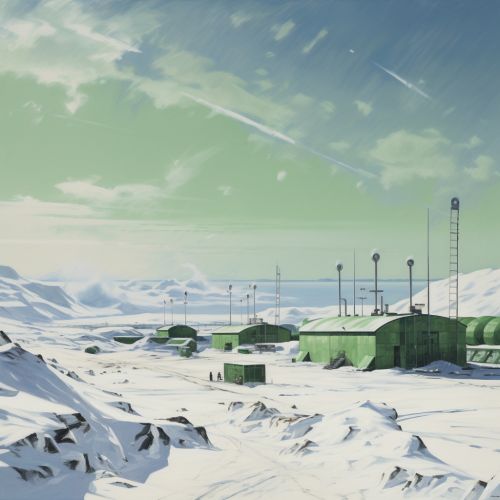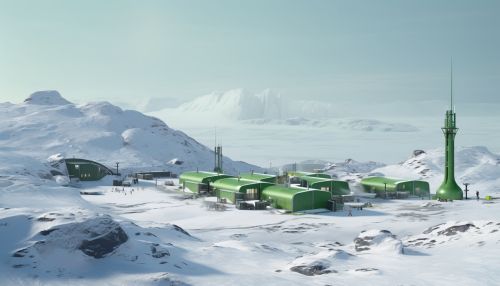Scott Base
Overview
Scott Base is a New Zealand Antarctic research facility located on Pram Point, Ross Island. The base is named after Captain Robert Falcon Scott, a British Royal Navy officer and explorer who led two expeditions to the Antarctic regions. The base was established by the New Zealand Antarctic Society as a tribute to Scott and his team who died in 1912 on their return journey from the South Pole.


History
The idea for Scott Base was conceived in the early 1950s, during the planning stages of the International Geophysical Year (IGY), a scientific project that ran from 1957 to 1958. The IGY involved 67 countries and marked a significant increase in Antarctic exploration. New Zealand, as a participant, was encouraged to establish a permanent base in the Antarctic. The base was officially opened on January 20, 1957, and has been continuously occupied since.
Location and Climate
Scott Base is situated on Ross Island, the southernmost island reachable by sea. The base is approximately 2,000 kilometers from the South Pole and 3,800 kilometers from New Zealand. The island is dominated by Mount Erebus, one of the few consistently active volcanoes in the world.
The climate at Scott Base is polar, characterized by long, extremely cold winters and short, cool summers. The average annual temperature is -20°C, with the coldest months being August and September. The base experiences 24-hour daylight from October to February and 24-hour darkness from April to September.
Facilities and Operations
Scott Base is designed to accommodate up to 85 people during the summer months, with a core team of 10-14 personnel remaining over winter. The base comprises a series of interconnected green buildings, which include living quarters, laboratories, workshops, and storage areas.
The base is primarily used for scientific research, with a focus on glaciology, geology, meteorology, and marine biology. The base also supports deep field science parties, particularly those working on the Antarctic Plateau or in the Dry Valleys.
Environmental Considerations
Scott Base operates under the principles of the Antarctic Treaty System, which prohibits any activity that could harm the environment. The base has implemented several measures to minimize its environmental impact, including waste management systems and energy-efficient technologies.
